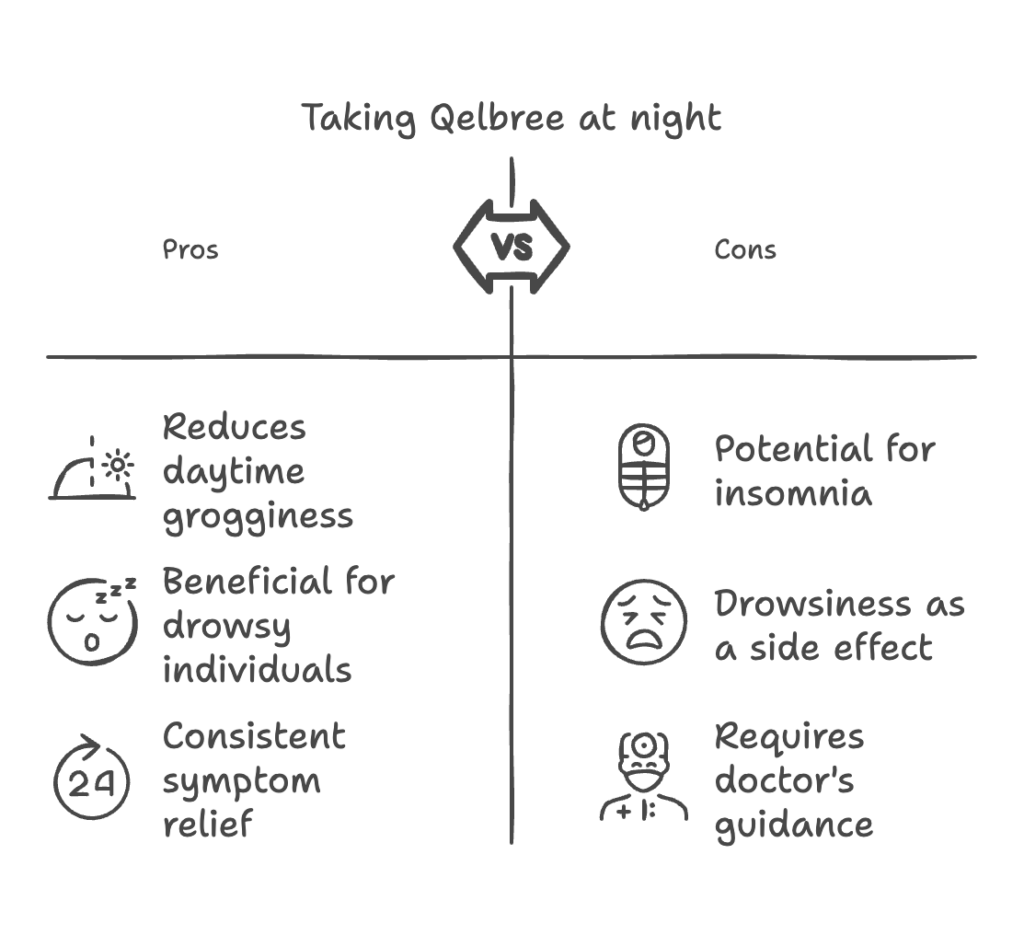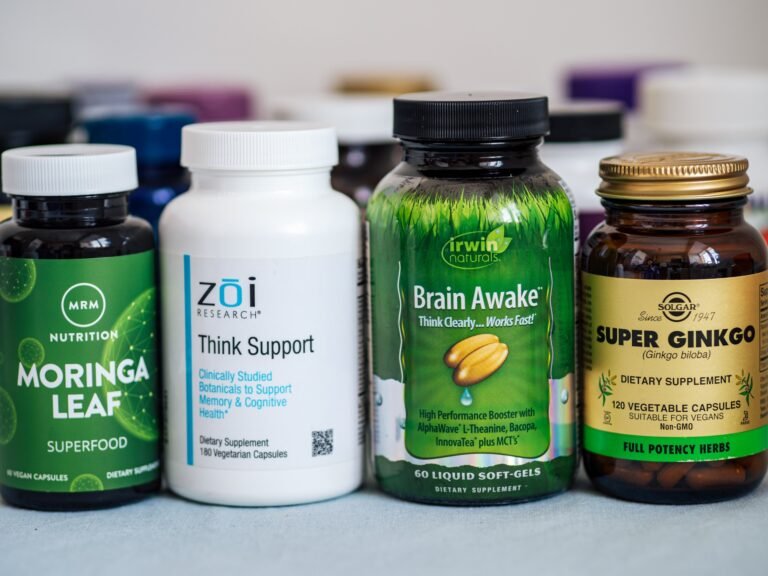Can Qelbree Be Taken at Night?
Yes, Qelbree can be taken at night—but there are a few things to keep in mind:
- Sleepiness as a Side Effect: Some people experience drowsiness when taking Qelbree. For them, taking it at night can actually be beneficial and may prevent grogginess during the day.
- Potential for Insomnia: While rare, some people report mild insomnia with Qelbree. If you notice it interferes with your sleep, switching to a morning dose might work better.
- Doctor’s Guidance: Always follow your healthcare provider’s advice on when to take Qelbree, as they’ll base their recommendation on your symptoms and daily schedule.
What to Watch For
If you’re considering taking Qelbree at night, monitor how your body responds:
- Do you feel drowsy or more relaxed after taking it?
- Does it interfere with your ability to fall or stay asleep?
- Is your ADHD symptom relief consistent throughout the following day?
You might want to check out other options as well.

Pro Tip
Start by taking Qelbree at the same time each day and track your body’s response. If you’re unsure about switching to nighttime dosing, talk to your doctor—they may adjust your timing to suit your needs.
Final Thoughts
Yes, Qelbree can be taken at night, especially if it aligns better with your schedule or helps with side effects like drowsiness. However, the ideal timing depends on how your body reacts to the medication. As always, consult your healthcare provider to find the schedule that works best for you.








